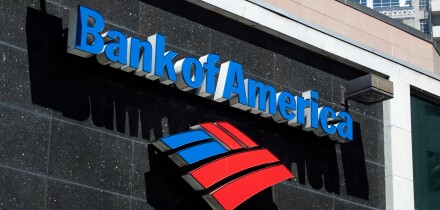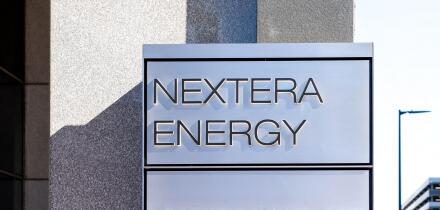The debate around the UK referendum in June has only intensified, and it is reasonable that options on sterling and on equities would reflect fears about the decision. In this case, there is a direct line from the political agency of the British public to potentially massive economic disruption.
The electoral fate of Donald Trump, however, is another matter.
Pravit Chintawongvanich, a strategist at Macro Risk Advisors in New York, has compared the term structures of implied volatility in S&P 500 and FTSE 100 index options to determine that there is a "huge disconnect" between the political risks investors are pricing into those markets.
But should Trump win the Republican nomination, or even the election, the putative effects on markets are not something one would expect to be visible from the pricing of equity index options today, for several reasons. First, the event in question is much too distant, and any incremental increase in option prices around the November election would be overwhelmed by the other factors driving risk premiums right now, such as quarterly earnings, monetary policy shifts, emerging market growth risks, and so on.
Second, even if an investor was certain of a Trump nomination and rally in the polls against Hillary Clinton, the cost of carrying a long volatility position until September or October would likely not be worth the payoff.
Assuming for the sake of argument that investors betting on a "Trump spike" in volatility saw the same differential in October that "Brexit" volatility buyers have created now — about three percentage points of volatility in FTSE 100 options — they would face an equally large carrying cost given the current shape of the S&P 500 options market. An even payout for an extremely remote scenario sounds like an unattractive gamble.
Third, the fiscal and economic effects of a Trump presidency are far from clear.
Analysts would be foolish to assume that investors will or should take at face economic value promises about border walls, levies on Chinese imports, or tax hikes to "pay off" the national debt; particularly when they are made by a professional showman with very slim chances of even being competitive in a general election. Moreover, it is just as likely that, were Trump to somehow find a way around his deservedly horrible reputation among women and ethnic minority voters, he would have done so only by promising even more fiscally stimulative economic measures than Clinton seems prepared to offer. The most likely outcome even from a moonshot Trump victory would still be a gridlocked Congress and fiscal inaction.
Finally, we note that the comparison with options pricing around the UK referendum is especially inapt. A British exit from the EU would be "unambiguously negative ... from a growth perspective and also a financial perspective," said Toby Nangle, portfolio manager at Columbia Threadneedle in London.
While polls have continued to show substantive indecision ahead of the June referendum, there is no data-driven case to be made as yet for Trump competitiveness; and as noted above, the net economic effects may just as well be neutral or even perhaps positive for the US from a Trump win.
There’s nothing to price in, yet.






